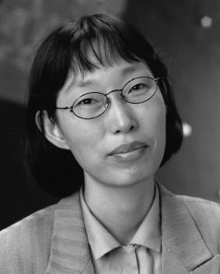Posted on : Jan.16,2007 15:13 KST
By Lee Yeong-mi, cultural critic
Plagiarism in academia is not going to be eradicated easily. That's because, as those involved often say, it has been common practice. It represents the entangled combination of the practice of thinking nothing of immorality, a climate where those who produce knowledge lack creativity, and way too much tolerance for that lack of creativity.
Let's leave the "common practice" for later and talk first about the lack of creativity. There are not many people in Korea who think of research as an act of creation and production. People assume someone has what it takes to engage in research, even if their research and article writing does not go as far as production and if all they do is "consume" the intellectual products of others and "study" them. There are a surprising number of academic works that don't make any new arguments, that merely translate, summarize, and introduce the theories of others (generally theories from other countries) before adding a few case examples as to why the given theory is valid, just as there are a surprising number of academic works that are just material research or commentary on other documents.
Take a look at the universities, and most the kids you see who say they're going to make a life of scholarship are not particularly creative. They read but do not question, and do not wish to confront what they read with ideas of their own. Many think they are going to be scolded by their professors if they do. (Indeed, there are a lot of uncreative professors who like to scold students that speak up.) It's an attitude where the act of consumption, the mere studying part, is all that ever happens in the way of research.
The problem is that our society is too accepting of this kind of research. Again, this is because it is simply common practice. However, there needs to be a different kind of response when you think of what this leads to in a larger social context. A researcher summarizes a foreign book of theory wholly intact (except for being stingy with footnotes) and finishes up by adding a few Korean examples at the end. A few years later, when research in the field has accumulated and many more researchers have been reading the foreign book in question, everyone finally gets the fact that the work in question was very uncreative (or, to be blunt, plagiarized). Not that anyone brings up the issue. It's been common practice, and since everyone knows everyone else anyway, everyone has wanted to avoid making a fuss. The researcher would always continue to be treated as an important member of the community, because you were able to get recognition just for being the very first person in Korea to "study" that foreign theory.
A few years later, someone overseas, believing the Korean researcher's work is an important contribution, invites the Korean to translate his work from Korean for the world to see. What would the researcher have done in this situation? He'd be stuck in an awkward position because if he translated his stuff into a foreign language it would immediately become apparent that he'd been plagiarizing. The researcher I'm thinking of ended up scrambling to write something new, and that's what he sent.
The question of ownership of intellectual property is most apparent when stealing the work of one's students. Indeed, in my own experience in advising papers and dissertations, when I've suggested a topic, an approach, helped write the table of contents and even tweaked some of the sentences, there are times when at an emotional level I'm not sure whose work it is. Nevertheless, giving to someone who learns from me and caring for that student is how it should be. Once given, it all belongs to the student.
When you give what little you have, you feel all the more for it. The problem is that you always want to accomplish more than your creative abilities allow, which is why people steal ideas from foreign advertisements, the tunes from foreign hit songs, and scurry to package conversations with coworkers in novels. Let's all live our lives producing only what we each have to give.
Please direct questions or comments to [englishhani@hani.co.kr]






